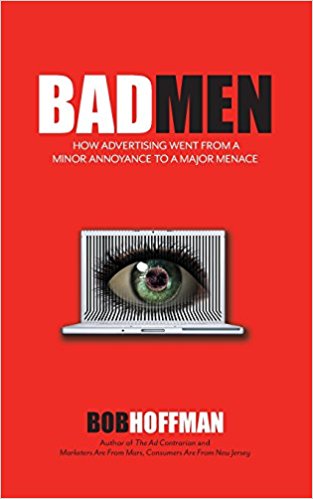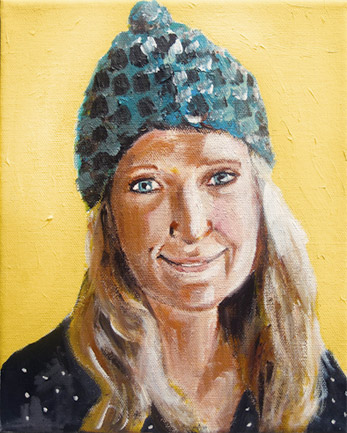Lies, damned lies and advertising
I once wrote a post about how advertising is essentially lying.
On the minuscule off-chance that you haven’t read it, the upshot was something like this: advertising is inherently mendacious. We use euphemisms like ‘dramatise the proposition’ to justify the creation of exaggerated representations of what products and services are capable of. Is waiting for a pint of Guinness anything like waiting for that wave? Does wearing Levi’s jeans make you feel like you can run through walls or twist your body around? Does the slightly better colour on a Sony TV seem anything like millions of balls bouncing around San Francisco? Of course not. Dramatised propositions can be entertaining and memorable, but they’re miles away from the product experience.
And when we’re not exaggerating we’re presenting things in their ‘best light’, which usually bears little resemblance to their ‘usual light’.
Don’t think I’m writing this after a moment of sledgehammer epiphany (that happened to me in 2002 and it didn’t stop me cracking out another fifteen years and counting). I understand what we do and why we do it, and I don’t have a day-to-day problem with that because it’s not good or bad.
BUT
(That’s a bigish ‘but’.)
We have to accept that there are consequences to that inbuilt degree of bulshittery. The first is that advertising is not generally regarded as the most trustworthy of practices. I know trust in advertising has increased recently, but I think that’s down to a kind of reconditioning: we’ve all watched so much untruthful advertising over the years that we no longer expect any real truth, so our standards have shifted. For years people have added a pinch of salt to every corporate communication they’ve been exposed to and ignored most of what they’ve been told. Perhaps an apposite metaphor is that of the current British public who are fed so many Brexit-shaped bulshitifications they can no longer be bothered to call each one out. Or anyone who reads a British tabloid: there’s some sort of distant nod towards the truth somewhere but not in any way that makes you trust what you read.
But that’s not actually the point of this post.
In recent months I’ve been noticing more and more articles about shady practices in the online side of things. Of course, I’d been aware of this shadiness for years because I’d been paying attention to the excellent work of Bob Hoffman, AKA The Ad Contrarian. His regular clarifications of online advertising bollocks have provided a front row seat to a number of problems that affect all our daily lives, yet few people discuss.
If you want the gory details please buy his excellent book. Here are some of the bullet points:
Ad tech means that you are followed wherever you go online. Every breath you take, every move you make, every visit to Pornhub that makes your genitals shake, they’ll be watching you. Instead of selling advertising to people, they’re selling people to advertising.
Google and Facebook know how much you earn, where you spend it, how much is in your bank account, your sexual preferences, your medical history, whether you’ve committed a crime, all your phone numbers and email addresses – and those of your friends, your political opinions and every other thing you think should come under the umbrella of privacy.
In many cases, less than 5% of online media ad budget goes towards ads people actually look at for more than a second.
Agencies have paid millions in compensation to some of the largest clients who have been defrauded by the online ad process. Unfortunately for the smaller clients, confidentiality was a condition of the deal, so nobody knows who was diddled out of how much money, so they can’t use that information to pursue other claims, or check that it isn’t continuing.
600 million ad blockers have been installed, and, much to the annoyance of online ad firms, Apple is automatically adding them to its new operating system.
So how do you think that affects the level of trust between clients and agencies, consumers and advertising, and you and the internet?
I’m going to guess it hasn’t improved matters.
So we now have an industry that, through its own actions, has spent decades eroding trust in what it does, only to take the little that was left and flush it down the toilet. And it’s been one of those incremental processes that has been both too gradual to notice and big enough to allow people to abrogate any responsibility they had in the matter: ‘My tiny contribution can’t possibly have made much of a difference, so I might as well keep doing it.’
But look at where this has left us. Are we in a golden age of advertising, where our work is welcomed with open arms by a grateful public? Are graduates forming a long and hopeful queue to join our industry? Do clients respect what we do so much that they’re willing to pay top dollar for it?
No, no and no.
Is the trust issue the reason for all those problems? No.
But does it help? No.
The funny thing is we’re all consumers as well as advertising people, so we all go through the above experience. We all hate being followed around the internet. We all feel a shiver of revulsion at the way our deepest secrets are bought and sold without our explicit permission. We all despair at the lack of imagination and wit displayed by 99.999% of the work we see. We all stab the ‘skip ad’ button like a demented woodpecker. We all use ad blockers. And yet there’s a weird disconnection which makes us think it’s all someone else’s fault.
The first step on the road to recovery is admitting you have a problem, and that’s the essential process we’re currently missing.
Have a chat with your clients about whether they want to be treated like idiots. Whether they want to be part of the process that buys private, ill-gotten information from all over the net. Whether they want to be bored, irritated and annoyed by what they pay for. Whether they want to finance terrorism, drugs and human trafficking through their ad budgets. Whether they want their companies to produce something that subtracts from the sum total of human happiness.
They’re difficult questions, but until someone starts to to ask them the descent will continue apace.



